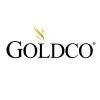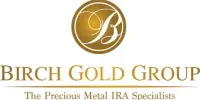Planning for retirement often means looking at different investment options. Precious metals IRAs have become a popular choice for many people who want to add something different to their retirement plans.

The best precious metals IRA companies include Augusta Precious Metals, Goldco, and American Hartford Gold, which offer reliable service, competitive fees, and solid customer support. These companies make it easy to invest in gold, silver, and other precious metals as part of your retirement strategy.
These specialized IRA accounts allow retirement savings to be invested in physical gold and other metals rather than just stocks and bonds. They can provide protection during economic uncertainty since precious metals often hold value when other investments don’t.
Understanding Precious Metals IRAs

Precious metals IRAs offer investors a unique opportunity to diversify their retirement portfolios with physical gold, silver, platinum, and palladium. These specialized retirement accounts provide protection against inflation and economic uncertainty while giving investors tangible assets that maintain intrinsic value.
What is a Precious Metals IRA
A Precious Metals IRA is a self-directed individual retirement account that allows investors to hold physical precious metals as part of their retirement strategy. Unlike traditional IRAs that typically contain stocks, bonds, and mutual funds, these specialized accounts hold IRS-approved gold, silver, platinum, and palladium.
These accounts follow the same contribution limits and tax advantages as conventional IRAs. Investors can choose between Traditional, Roth, SEP, or SIMPLE IRA structures.
The metals are stored in IRS-approved depositories, not in personal possession. This ensures security and compliance with retirement account regulations.
Most investors work with a custodian who specializes in precious metals IRAs to handle the paperwork, metal purchases, and storage arrangements.
Benefits of Investing in Precious Metals
Precious metals offer significant portfolio diversification, often moving independently from stocks and bonds. This negative correlation helps reduce overall investment risk.
Physical gold and silver have historically served as hedges against inflation. When the dollar weakens, precious metals typically maintain or increase their purchasing power.
These metals provide protection during economic downturns and geopolitical crises. When markets become volatile, investors often turn to gold and silver as “safe haven” assets.
Precious metals have maintained value for thousands of years, unlike paper currencies that can devalue over time.
Supply constraints, particularly with platinum and palladium, may create favorable price movements as industrial demand increases.
Types of Precious Metals Allowed in IRAs
The IRS has strict requirements for precious metals in retirement accounts. Only certain fineness standards are permitted:
Gold: Must be 99.5% pure (24 karat), with exceptions for American Gold Eagles.
Silver: Must be 99.9% pure.
Platinum: Must be 99.95% pure.
Palladium: Must be 99.95% pure.
Common IRA-eligible products include:
- American Eagle coins (gold, silver, platinum)
- Canadian Maple Leaf coins
- Australian Kangaroo/Nugget coins
- Credit Suisse and other approved gold bars
- Platinum and palladium bars/coins meeting purity requirements
Collectible or rare coins, regardless of metal content, are generally not allowed in IRAs. Investors should verify eligibility before purchasing metals for retirement accounts.
Choosing the Best Gold IRA Companies

Selecting the right gold IRA company requires careful evaluation of reputation, track record, fee structure, and support services. These factors directly impact your investment experience and potential returns.
Criteria for a Reputable Gold IRA Company
Trustworthiness should be your top priority when selecting a gold IRA company. Look for businesses with proper accreditation from the Better Business Bureau (BBB) with ratings of A+ or A. Industry associations like the American Numismatic Association can also indicate legitimacy.
Regulatory compliance is non-negotiable. The company must follow IRS guidelines for precious metals IRAs and have transparent custody arrangements with approved depositories.
Required credentials include:
- IRS approval for precious metals IRAs
- State licenses and registrations
- Professional certifications for staff
Customer reviews provide valuable insights into actual client experiences. Companies like Augusta Precious Metals and Goldco typically maintain high satisfaction ratings across independent review platforms.
Comparing Company Track Records
Longevity in the precious metals industry suggests stability and reliability. Established providers like Birch Gold Group (founded in 2003) and American Hartford Gold have weathered market fluctuations successfully.
Investment performance records matter. Ask companies about their clients’ average returns and portfolio performance during economic downturns.
Notable industry awards include:
- Inc. 5000 listings
- Investment industry recognition
- Consumer protection accolades
Red flags to watch for:
- Pending lawsuits or regulatory actions
- Frequent company name changes
- Excessive customer complaints about the same issues
Noble Gold stands out for its transparent business practices and clear communication about investment risks and potential returns.
Understanding Fees and Pricing
Fee structures vary significantly between gold IRA companies. Common charges include setup fees ($50-300), annual administration fees ($75-300), storage fees ($100-300 annually), and seller’s markup on precious metals (2-10% above spot price).
Request a comprehensive fee disclosure document. Some companies like Augusta Precious Metals offer fee waivers for qualifying accounts or first-year promotions.
Beware of hidden costs such as:
- Insurance fees
- Wire transfer charges
- Liquidation or selling fees
Price matching policies can save money. Some providers like Goldco will match or beat competitors’ pricing on identical products.
Transaction minimums vary from $5,000 to $50,000 for initial investments. Companies often reduce fees for larger accounts.
Evaluating Customer Education and Support
Educational resources demonstrate a company’s commitment to informed investing. Look for providers offering:
- Market analysis newsletters
- Educational webinars and videos
- Free investment guides
Support accessibility matters. Top companies like Birch Gold Group provide multiple communication channels with extended availability hours.
Quality indicators include:
- Dedicated account representatives
- Quick response times to inquiries
- Clear explanations of complex topics
American Hartford Gold offers retirement planning tools that help integrate precious metals into broader investment strategies.
Buyback programs provide important exit options. Verify whether companies guarantee repurchase of metals at fair market prices and what conditions apply.
Setting Up Your Gold IRA

Starting a precious metals IRA requires following specific steps to ensure your investment is properly structured and compliant with IRS regulations. The process involves choosing the right financial partners and understanding how your assets will be handled.
Selecting a Custodian
Choosing a qualified custodian is the first critical step in establishing your gold IRA. A custodian is a financial institution approved by the IRS to hold precious metals on your behalf.
Look for custodians with strong reputations and extensive experience handling precious metals IRAs. Companies like Equity Trust, Kingdom Trust, and STRATA Trust Company are well-known in this space.
The best custodians offer:
- Transparent pricing with clearly defined fee structures
- Strong security protocols for asset protection
- Responsive customer service
- Online account access
- Educational resources about precious metals investing
Compare several custodians before making your decision. Review their fee schedules carefully, as annual maintenance fees, storage fees, and transaction fees can vary significantly between providers.
The Account Setup Process
Opening a gold IRA typically takes 1-2 weeks from start to finish. The process begins with completing an application form with your chosen custodian.
Required documentation usually includes:
- Government-issued photo ID
- Social Security number
- Banking information
- Beneficiary designations
Once your application is approved, the custodian will establish your account and provide access credentials. Most companies now offer digital applications and account management through secure online portals.
During setup, you’ll need to decide on your storage options. The IRS requires all IRA-eligible precious metals to be held in an approved depository. Your metals cannot be stored at home if they’re part of an IRA.
Funding Your IRA
Investors have several options for funding a new gold IRA. The most common method is an IRA rollover from an existing retirement account.
Direct transfers from another IRA or 401(k) are typically tax-free and penalty-free. The custodian can help facilitate this process by coordinating with your current retirement account administrator.
Alternative funding methods include:
- Annual contributions (subject to IRS limits)
- 401(k) rollovers from former employers
- Transfers from traditional or Roth IRAs
After funding is complete, you can work with your gold IRA company to select and purchase IRS-approved precious metals. Current regulations allow specific gold, silver, platinum, and palladium products with minimum fineness requirements.
Most custodians require 3-7 business days to complete purchases and arrange secure transport to the designated depository.
Rolling Over Existing Retirement Accounts

Moving your retirement savings to a precious metals IRA requires understanding the rollover process, regulations, and transfer options. A proper rollover preserves your tax benefits while allowing you to diversify into physical gold, silver, and other precious metals.
How to Conduct a Rollover
A rollover involves moving funds from your existing retirement account to a precious metals IRA without triggering taxes or penalties. The process typically follows several key steps.
First, select a reputable precious metals IRA company to establish your new account. These specialists will guide you through paperwork and compliance requirements.
Next, contact your current retirement plan administrator to request a distribution. You can choose between a direct rollover (funds transfer directly between institutions) or an indirect rollover (funds come to you temporarily).
Direct rollovers are generally safer as they avoid potential tax withholding. With indirect rollovers, you must deposit the funds into your new IRA within 60 days to avoid penalties and taxes.
Most precious metals IRA companies offer assistance with transfer paperwork and coordination between custodians to ensure a smooth transition.
Rollover Limits and Regulations
The IRS maintains specific rules governing retirement account rollovers to protect tax advantages and prevent abuse of the system.
For indirect rollovers, the 60-day rule is strictly enforced. Missing this window results in the distribution being treated as taxable income plus a 10% early withdrawal penalty if you’re under 59½.
You can only perform one IRA-to-IRA rollover in any 12-month period. This limitation applies across all your IRAs collectively, not individually. However, direct trustee-to-trustee transfers aren’t subject to this once-per-year limit.
Not all retirement assets can be rolled over. Only IRS-approved precious metals (gold, silver, platinum, and palladium) meeting specific purity standards qualify for inclusion in a precious metals IRA.
Contribution limits don’t apply to rollovers, allowing you to transfer substantial retirement savings into precious metals all at once.
Transferring from Other Retirement Accounts
Various retirement accounts can be sources for precious metals IRA funding, each with unique considerations.
401(k) to Precious Metals IRA: If you’ve left your employer, you can roll over your 401(k) to a precious metals IRA. Some plans also allow in-service distributions while still employed.
Traditional IRA to Precious Metals IRA: These transfers are straightforward since both accounts have the same tax treatment. The funds remain tax-deferred until withdrawal.
Roth IRA to Precious Metals Roth IRA: Roth accounts must transfer to Roth precious metals IRAs to maintain their tax-free growth potential.
Other eligible accounts include:
- 403(b) plans
- 457(b) government plans
- Thrift Savings Plans (TSP)
- SEP and SIMPLE IRAs (after two years for SIMPLE IRAs)
Working with a knowledgeable precious metals IRA specialist helps navigate these different transfer scenarios and prevent costly mistakes.
Storage and Security Features of Precious Metal IRAs

Protecting your precious metals investment requires understanding the storage options and security measures that IRA companies provide. The safekeeping of physical gold, silver, and other metals involves specialized facilities with strict protocols to ensure your assets remain secure.
Choosing a Secure Depository
When investing in a precious metals IRA, you cannot store the metals at home. IRS regulations require that approved depositories hold all IRA-eligible metals. Leading facilities include the Delaware Depository, Brink’s Global Services, and the International Depository Services Group.
These depositories feature multiple security layers including:
- 24/7 armed guards
- Advanced surveillance systems
- Motion sensors
- Timed locks
- Bulletproof glass
Location matters too. Many top depositories operate in jurisdictions with favorable insurance regulations and strong property protection laws.
Before selecting an IRA company, investors should research which depositories they partner with. Some companies offer limited options while others provide choices in multiple states or even internationally.
Segregated vs. Commingled Storage
Precious metals IRAs offer two primary storage methods: segregated and commingled storage. Each has distinct advantages and cost implications.
Segregated storage means your metals are stored separately from other investors’ holdings. Your specific coins or bars are set aside in a designated space with unique identification numbers. This option typically costs more but ensures you receive the exact same metals you purchased if you take physical possession later.
Commingled storage combines your metals with those of other investors, though they remain categorized by type and quality. You own a specific portion of the shared holdings. This option costs less because it requires less space and administrative work.
Many investors prefer segregated storage for rare coins or limited-mintage items. For standard bullion, commingled storage often makes more economic sense.
Insurance and Safety Protocols
Comprehensive insurance coverage forms a critical component of precious metals IRA security. Reputable depositories carry all-risk insurance policies that protect against theft, damage, and natural disasters.
Most facilities maintain coverage through Lloyd’s of London or similar premier insurers. The best IRA companies ensure coverage equals 100% of the metals’ value and provide documentation confirming this protection.
Beyond insurance, depositories implement rigorous safety protocols:
- Regular third-party audits
- Detailed inventory tracking systems
- Employee background checks
- Disaster recovery plans
Storage fees typically range from 0.5% to 1% of asset value annually. These fees cover both the physical storage and insurance costs.
Companies like Equity Trust and Kingdom Trust stand out for their transparent fee structures and comprehensive security documentation provided to clients.
Comprehensive Investment Options

Leading precious metals IRA companies offer various products and portfolio diversification strategies to help investors protect their retirement savings. The best companies provide both common and rare metals in multiple forms to meet different investment goals.
Types of Precious Metals Products Offered
Top precious metals IRA companies stock IRS-approved metals including gold, silver, platinum, and palladium. Gold coins like American Eagles, Canadian Maple Leafs, and Austrian Philharmonics remain popular choices for investors. Silver coins such as American Silver Eagles and silver bars in various weights also attract significant interest.
Gold bars typically range from 1 ounce to 1 kilogram, with purity levels of 99.5% or higher to meet IRA requirements. Silver bars come in sizes from 1 ounce to 100 ounces, offering flexibility for different investment amounts.
Premium providers also offer proof coins and limited mintage items that may have numismatic value beyond their metal content.
Diversity in Investment Choices
The best companies enable investors to create balanced precious metals portfolios rather than concentrating on a single metal. This approach helps diversify risk across different commodities that may perform differently during various economic conditions.
Most reputable providers offer both bullion products and IRA-eligible options that meet specific IRS fineness requirements. Gold must be 99.5% pure, while silver requires 99.9% purity to qualify for IRA inclusion.
Some companies provide unique services like storage allocation strategies, helping investors maintain optimal percentages of each metal. This balanced approach combines gold’s stability with silver’s growth potential and industrial demand.
Investors should examine a company’s full product catalog before deciding, ensuring they offer sufficient options to build a properly diversified metals portfolio.
Cost Considerations in Precious Metals IRAs

Managing costs effectively is crucial when investing in precious metals IRAs. Understanding the fee structure and investment requirements helps investors maximize returns and avoid unexpected expenses.
Assessing Account and Storage Fees
Most precious metals IRA companies charge annual fees that typically range from $75 to $300. These fees cover account maintenance and administration services. Storage fees are another important cost, usually between $100-$150 annually, depending on whether you choose segregated or non-segregated storage.
Some companies offer sliding scale fees based on investment amounts. Larger accounts may qualify for reduced rates or fee waivers. Be aware of hidden charges like wire transfer fees ($25-$35) or shipping insurance costs.
Companies with transparent pricing clearly display all fees on their websites. It’s important to request a complete fee schedule before opening an account. Look for providers offering competitive pricing and avoid those with vague fee disclosures.
Calculating Initial and Minimum Investments
The minimum investment requirement varies significantly among precious metals IRA companies. Most reputable providers set their minimums between $5,000 and $25,000 for opening an account.
Some companies have lower initial purchase requirements of $1,500-$3,000 to attract new investors. After the initial setup, subsequent purchases often have lower minimum purchase requirements, typically around $1,000.
Consider these minimums in relation to your overall investment strategy. Higher minimums often come with reduced percentage-based fees, potentially saving money long-term for larger investors.
Watch for quantity discounts when purchasing metals in bulk. Many companies offer reduced premiums on larger orders, which can significantly lower your average cost per ounce.
Be cautious of providers with unusually low minimums, as they may compensate with higher fees or markups on metals purchases.
Investor Resources and Education
Quality precious metals IRA companies invest heavily in customer education. These providers offer various tools and resources to help investors make informed decisions about their retirement portfolios.
Available Educational Materials
Most top precious metals IRA companies maintain comprehensive resource centers on their websites. These typically include beginner guides, market analysis reports, and investment strategies specifically for precious metals IRAs.
Many companies offer:
- Free investment kits explaining the basics of precious metals investing
- Weekly or monthly newsletters with market updates
- Webinars and video tutorials demonstrating how precious metals function in a retirement portfolio
- E-books and whitepapers covering tax implications and regulatory considerations
Physical resources such as printed guides are also available from some providers. Investors should look for companies that regularly update their educational materials to reflect current market conditions and regulations.
Learning the Market with Professional Guidance
Beyond self-study materials, leading precious metals IRA companies connect investors with knowledgeable professionals. These experts help clarify complex investment concepts and provide personalized guidance.
Services often include:
- One-on-one consultations with precious metals specialists
- Account representatives assigned to answer ongoing questions
- Retirement planning tools tailored to different investment horizons
- Market alert systems that notify investors of significant price movements
The best companies employ advisors with verifiable credentials and extensive experience in both precious metals and retirement planning. These professionals can explain how different metals perform during various economic conditions.
Some companies also host periodic seminars or client education days. These events allow investors to deepen their understanding of precious metals markets through direct interaction with industry experts.
Company Reputation and Customer Satisfaction
When choosing a precious metals IRA company, reputation and customer experiences should be top priorities. Trustworthy companies maintain strong industry ratings while delivering consistent service that meets real customer needs.
Evaluating Industry Ratings and Accreditations
The Better Business Bureau (BBB) provides valuable ratings that reflect how companies handle customer complaints. Top precious metals IRA providers typically maintain A+ BBB ratings through responsive customer service and transparent business practices. The Business Consumer Alliance (BCA) offers another important grade, with AAA ratings reserved for companies with exceptional track records.
Look for companies with multiple accreditations from respected organizations. These credentials indicate adherence to industry standards and ethical business conduct. Companies that prominently display their ratings and respond professionally to complaints demonstrate accountability.
Verification is essential. Check these ratings directly on official websites rather than relying solely on company claims. Some firms may display outdated ratings or selective feedback.
Understanding Real Customer Experiences
Customer reviews reveal the day-to-day reality of working with precious metals IRA companies. Pay attention to comments about response times, knowledge of representatives, and problem resolution.
Consistent themes in feedback often indicate genuine strengths or weaknesses. If multiple customers mention exceptional customer support or difficulties with account setup, these patterns are significant.
Third-party review sites like Trustpilot and Google Reviews offer more balanced perspectives than testimonials on company websites. Look for detailed reviews that describe specific interactions rather than vague praise.
Customer satisfaction often hinges on transparency about fees and processes. Companies with high satisfaction rates typically provide clear information upfront and maintain regular communication throughout transactions.
Buyback Programs and Exit Strategies
When investing in precious metals for retirement, understanding how to liquidate your assets is just as important as knowing how to acquire them. The best precious metals IRA companies offer clear exit paths for investors through structured buyback programs.
Importance of Buyback Commitments
A reliable buyback program ensures you can sell your metals when needed without scrambling to find buyers. Top gold IRA services typically offer buyback commitments, giving investors peace of mind about future liquidity.
These programs eliminate the need to find third-party buyers or negotiate prices independently. This becomes especially valuable during market volatility or when you need to take required minimum distributions from your retirement account.
Companies with strong buyback commitments often purchase metals at competitive market rates. This can save investors significant time and potential losses compared to selling through other channels.
The best providers make this process straightforward with minimal paperwork and quick processing times. Look for companies that advertise their buyback program prominently, as this signals confidence in their service.
Terms and Conditions of Buyback Programs
The fine print matters when evaluating a company’s buy-back guarantee. Reputable firms offer transparent terms without hidden fees or restrictive conditions.
Some companies charge repurchase fees or offer below-market rates. Always compare the buyback price to current spot prices to ensure fair treatment.
Processing times vary between providers. Some complete transactions within 24-48 hours, while others might take weeks. This timeline can impact your financial planning, especially during time-sensitive situations.
Minimum quantity requirements may apply. Certain firms only repurchase complete sets or minimum quantities of coins or bars.
Look for flexibility in payment methods. Top companies offer multiple options including wire transfers, checks, or even reinvestment into different metals or assets.
Buy-back terms might change based on market conditions. The best providers maintain consistent policies regardless of market fluctuations, demonstrating reliability and customer commitment.
Investing in precious metals through an IRA offers significant tax advantages while requiring careful adherence to IRS guidelines. Understanding these benefits and regulations helps investors maximize their retirement savings potential.
Understanding IRA Tax Advantages
Precious metals IRAs provide tax-deferred growth, meaning you won’t pay taxes on gains until you take distributions during retirement. For traditional IRAs, contributions may be tax-deductible, reducing your current taxable income.
Roth precious metals IRAs offer different benefits. While contributions aren’t tax-deductible, qualified withdrawals in retirement are completely tax-free. This can be particularly valuable if metal prices appreciate significantly over time.
Many investors choose precious metals IRAs as a tax-efficient diversification strategy. The tax advantages allow for potential compound growth that might otherwise be diminished by annual capital gains taxes in regular investment accounts.
When planning retirement, the timing of distributions matters. Taking distributions before age 59½ typically triggers a 10% early withdrawal penalty along with regular income taxes.
Compliance with IRS Regulations
The IRS maintains strict guidelines about which precious metals qualify for IRA investments. Acceptable metals must meet specific purity standards: gold (99.5%), silver (99.9%), platinum (99.95%), and palladium (99.95%).
Not all forms of precious metals are IRA-eligible. Collectible coins, jewelry, and certain rare coins don’t qualify. Only specific bullion coins, bars, and rounds that meet purity requirements are permitted.
IRS regulations require that IRA-owned precious metals be stored in approved depositories, not in personal possession. These facilities must meet strict security and insurance requirements to protect your investment.
Working with reputable custodians helps ensure compliance with all storage and transaction regulations. These companies handle the paperwork necessary for proper reporting to the IRS.
Annual contribution limits apply to precious metals IRAs just like traditional retirement accounts. For 2025, individuals can contribute up to $7,000, with an additional $1,000 catch-up contribution for those 50 and older.
Market Analysis and Investment Timing
Successful precious metals investing relies on understanding market cycles and economic indicators. Timing purchases strategically can significantly impact long-term returns in a gold IRA portfolio.
Identifying Optimal Buying Opportunities
Gold prices often move inversely to stock markets, creating natural buying windows during economic downturns. When stock indexes fall significantly, precious metals typically gain attention as safe haven assets.
The best IRA companies provide tools to help investors identify these counter-cyclical opportunities. Many offer price alerts and market analysis reports highlighting potential entry points.
Some key buying signals include:
- Rising inflation rates above central bank targets
- Currency devaluation periods
- Geopolitical tensions affecting global markets
- Central bank gold purchasing activity increases
Dollar-cost averaging—making regular smaller purchases—can reduce timing pressure while still capitalizing on market dips. This strategy works well within a gold IRA structure.
Monitoring Market Trends and Indicators
Successful gold IRA investors track specific economic indicators that historically correlate with precious metals performance. The gold-to-silver ratio, which measures how many ounces of silver equal one ounce of gold, helps identify relative value.
Key metrics to monitor include:
- Federal Reserve interest rate policies
- U.S. dollar strength index
- Inflation data (CPI and PPI reports)
- Global mining production output
Top precious metals IRA companies provide regular market analysis and educational resources. These insights help investors understand how economic uncertainty affects their portfolio.
Many firms offer dashboard tools showing real-time price movements and technical indicators. These resources help identify potential trend reversals in gold, silver, platinum and palladium markets.
Frequently Asked Questions
Investors often have questions about precious metals IRAs and how to select the right company. These answers provide clarity on ratings, evaluation methods, ownership options, selection criteria, eligible metals, and investment factors.
What are the top-rated precious metals IRA companies currently?
Augusta Precious Metals consistently ranks as a top-rated precious metals IRA company due to its transparent pricing and excellent customer service. Goldco maintains high ratings for its simplified setup process and investor education resources.
Birch Gold Group earns strong marks for its extensive experience and personalized service approach. Noble Gold stands out for its reasonable minimum investment requirements and straightforward fee structure.
American Hartford Gold receives positive reviews for its buyback commitment and competitive pricing on metals. These ratings are based on customer reviews, industry certifications, and transparency in business practices.
How does one evaluate the best gold IRA companies in the market?
Investors should examine fee structures, including setup fees, annual maintenance costs, and storage fees. Transparency in pricing is essential – companies should clearly disclose all charges without hidden costs.
Customer service quality can be assessed through reviews, response times, and availability of dedicated representatives. Company reputation and longevity provide insight into reliability and industry standing.
Investors should verify industry credentials such as Business Consumer Alliance ratings and Better Business Bureau accreditation. Educational resources offered by the company indicate their commitment to informed investing.
What are the key differences between owning a gold IRA and holding physical gold?
A gold IRA offers tax advantages that direct physical gold ownership doesn’t provide. Contributions to traditional gold IRAs may be tax-deductible, while qualified withdrawals from Roth gold IRAs can be tax-free.
Physical gold ownership gives immediate access to your metals, while IRA gold must be stored in approved depositories. IRA-held precious metals must meet specific purity standards set by the IRS, whereas personal holdings have no such requirements.
Gold IRAs involve administrative fees and storage costs that don’t apply to personally held gold. However, IRAs provide retirement planning benefits and potential protection from creditors that physical gold ownership may not offer.
What criteria should investors look for when selecting a self-directed IRA for precious metals?
Investors should prioritize custodians with specific experience in precious metals IRAs, not just general self-directed IRAs. The fee structure should be transparent and competitive, with clear disclosure of all setup, maintenance, and storage costs.
Storage options deserve careful consideration – some companies partner with multiple depositories, offering choice in security approaches and geographic locations. Customer service responsiveness is crucial, especially when dealing with complex IRA regulations.
The company’s buyback program terms matter when eventually liquidating assets. Strong educational resources demonstrate the company’s commitment to helping clients make informed decisions about their precious metals investments.
Can you list the precious metals that are eligible for inclusion in an IRA?
Gold must be 99.5% pure to qualify for an IRA, with approved products including American Gold Eagles, Canadian Gold Maple Leafs, and Australian Gold Kangaroos. Silver requires 99.9% purity, with eligible options including American Silver Eagles and Australian Silver Kookaburras.
Platinum needs 99.95% purity, with American Platinum Eagles and Canadian Platinum Maple Leafs meeting the standard. Palladium also requires 99.95% purity, with options like Canadian Palladium Maple Leafs qualifying.
The IRS specifically prohibits collectible or rare coins from inclusion in IRAs. All precious metals must be produced by a national government mint or an accredited/certified refiner/manufacturer to qualify for IRA inclusion.
What factors should be considered when choosing the best precious metal to invest in through an IRA?
Historical price stability varies among metals, with gold typically showing less volatility than silver or platinum. Diversification benefits differ – silver often has both industrial and investment demand, while gold primarily serves as an investment hedge.
Storage costs vary by metal, with gold commanding higher fees due to its greater value density. Market liquidity should be considered, as gold generally offers the easiest liquidation options when needed.
Supply and demand fundamentals differ significantly – platinum and palladium have substantial industrial applications that drive their markets. Investors should align their metal choices with their overall retirement time horizon and risk tolerance.



